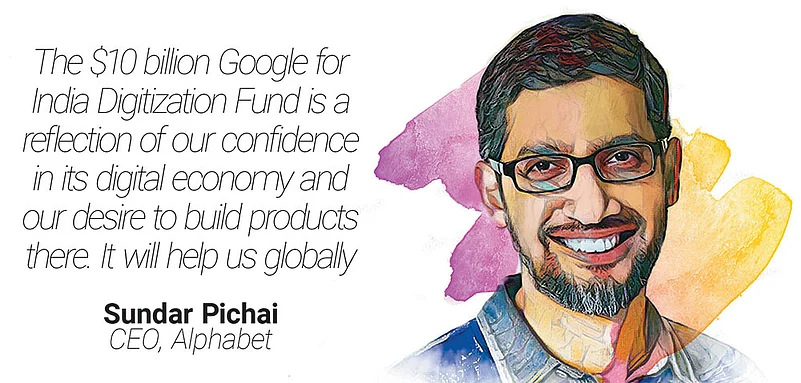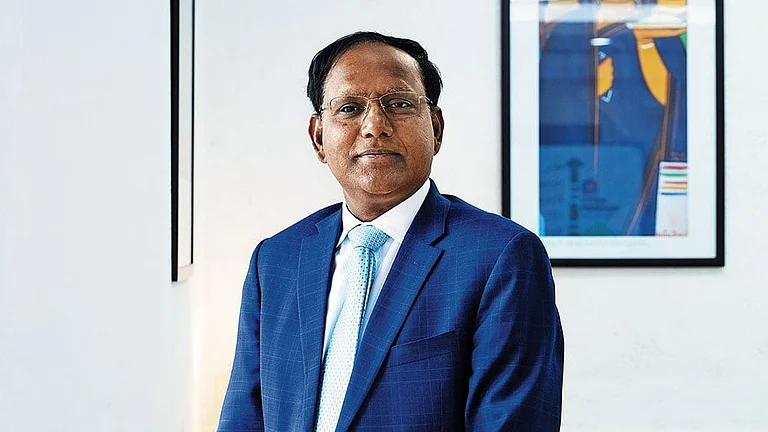India is well-positioned to be one of the world’s leading superpowers within the next decade, driven primarily by its new economy. This new economy is underpinned by India’s growing prominence as a hub for start-up activity and entrepreneurship. The biggest example of this is the fact that the total number of recognised start-ups in India rose from 471 in 2006 to 72,993 on June 30, 2022, a figure recently quoted by minister of state for commerce and industry Som Parkash. This 150x increase is a remarkable figure and testament to how all the necessary elements required to form a solid entrepreneurial ecosystem have come together in India.
The Global Start-up Ecosystem Index by StartupBlink is the world’s most comprehensive start-up ecosystem ranking, covering 1,000 cities across 100 countries. In the 2022 rankings, it should be no surprise that the US is placed first (and has been on the top spot since the inception of this index in 2017). Not only that, the total score of the US is almost four times that of the UK, the second ranked country. In total, the US has 257 cities among the top 1,000 cities, the UK has 78 cities in the index, making it the only other country with more than 50 cities in the index. Israel, Canada, Sweden, Germany and Singapore round out the top seven with China ranked 10th and, India ranked 19th, ahead of Japan at 20. India’s top-ranked cities are Bengaluru at Number 8, New Delhi at 13 and Mumbai at 19.
The most important element required to foster an entrepreneurial ecosystem is an entrepreneurial attitude and willingness to accept risk. When I graduated from St Stephen’s College in the late 1990s, next to no one went into start-ups. The preferred industries of choice remained investment banking and consulting, which even then were exceedingly high paying. Parents at that time felt that entrepreneurship was risky and the society would look down upon failed entrepreneurs, tarring them with the brush of failure, which would persist lifelong. This is no longer the case, as the sheer amount of wealth creation and jobs that successful start-ups create silences the risk-reward critics once and for all. As a mentor to several start-up founders in the country, the overwhelming feedback has been that parents and significant others have been very supportive. Even traditional industries are now open to hiring prior entrepreneurs for the business acumen they possess, which can set off a spark of innovation in monolithic companies struggling to accept change. In a world where “adapt or die” is the new mantra, out-of-the box thinking and increased risk appetite are invaluable attributes.
Government support and entrepreneur-friendly policies are a close second in fostering a start-up ecosystem within a country. The US, for example, is particularly renowned for legislation supporting strategic industries and the ability to attract talent by issuing visas for foreign would-be entrepreneurs. The ability of a country’s government to pivot as per global macro trends is critical, as evidenced by the recent US push to bring semiconductor manufacturing back to its home turf. The US version of free-market capitalism focuses on profit and high-risk tolerance, providing start-ups with the opportunity to grow without much interference from the public sector. The US system of light-touch regulation has been equally important in allowing entrepreneurial activity to flourish. The country’s flexible bankruptcy laws also allow entrepreneurs to fail and start over easily compared to the financial and reputational risks borne by entrepreneurs in other countries.
Leading institutions in the US, such as Harvard University, Stanford University and the Massachusetts Institute of Technology, provide an endless pool of both local and foreign talent, which then moves on to form world-leading companies. The UK, similarly, is blessed with world-class institutions in the University of Cambridge and the University of Oxford, where the AstraZeneca Covid vaccine was developed. India is not far behind in that context, considering the world-class engineering universities in the Indian Institute of Technology and other top regional engineering colleges. Anecdotal reports state that 25% of the founders in Silicon Valley are from India, a majority of whom go to the US for post-graduate studies after completing their graduate degrees in India. Even the CEOs of top American companies, like Alphabet, Adobe and Microsoft, are Indian.

One, however, cannot forget the relatively easy access to capital that US-based entrepreneurs have through a large network of venture capitalists (VCs), angel investors and mentorship via high-quality accelerators and incubators. In the case of the US and the UK, a lot of these funds are home-grown investors in local companies who have then spread their wings into investing in start-ups in other countries, China and India being the primary recipients of this funding in the last two decades.
However, recent macroeconomic events have left India poised to overtake China as the preferred destination for foreign venture capital and portfolio flows. China’s inexplicable zero-Covid policies have decimated the country’s economy, and the recent government crackdown on Big Tech and edtech indicates that it is political control, and not economic success, which is the primary objective of the Chinese leadership.
India is ready and waiting in the wings to access the capital flows which were hitherto destined for the Chinese market. Prime Minister Narendra Modi’s ‘Make in India’ campaign has been a huge success. It is a mark of pride for any Indian to see the latest Apple iPhone 14 being manufactured in India. Apple could also make 25% of all iPhones in India by 2025, according to a recent JP Morgan report.
But, there are a few clouds on the horizon from an economic perspective. Overly loose monetary policy during the pandemic has resulted in high inflation across the world, leading central banks to raise interest rates to curb it. Coupled with quantitative tapering, this in turn has squeezed liquidity around the world, which has made fund raising increasingly difficult for start-ups across the globe. However, India does have a few benefits compared to start-ups in other countries, mainly a huge domestic market which would preclude many start-ups from ever having to expand overseas. A tech-savvy, young English-speaking population also makes India a natural hedge for VCs looking to get into the Indian market at slightly more affordable valuations.
VC firms, such as Sequoia Capital, certainly think so, with Sequoia India having recently launched a $2 billion early-stage venture and growth fund in India. Similarly, Tiger Global recently announced a new $6 billion fund with a particular focus on B2B and consumer categories in India, which are significantly under-penetrated in comparison to other large markets. The overall Indian start-up ecosystem raised $42 billion in 2021 and has cumulatively raised $19 billion across 900 funding deals in the first half of 2022 from both foreign and domestic fund houses despite the so-called funding winter.
At the end of the day, the growth of the Indian economy required to take it to the superpower status will be powered by the twin engines of domestic growth and investment. Indian investors, who until very recently were overly conservative and stuck to vanilla investment products, have started moving into other asset classes, such as equities, while large family offices and high-net-worth individuals in India have already been investing in start-ups either directly or through domestic fund houses for some time now. Rough estimates peg domestic capital at about 20% of the total money raised for Indian start-ups as of June 2022, but there is no reason why this number cannot increase in the decade to come through a combination of private capital pools funded by insurance, pension and retail funds.
Kunal Chowdhry, Global Angel Investor and CEO, Apollo Singapore Investments


























